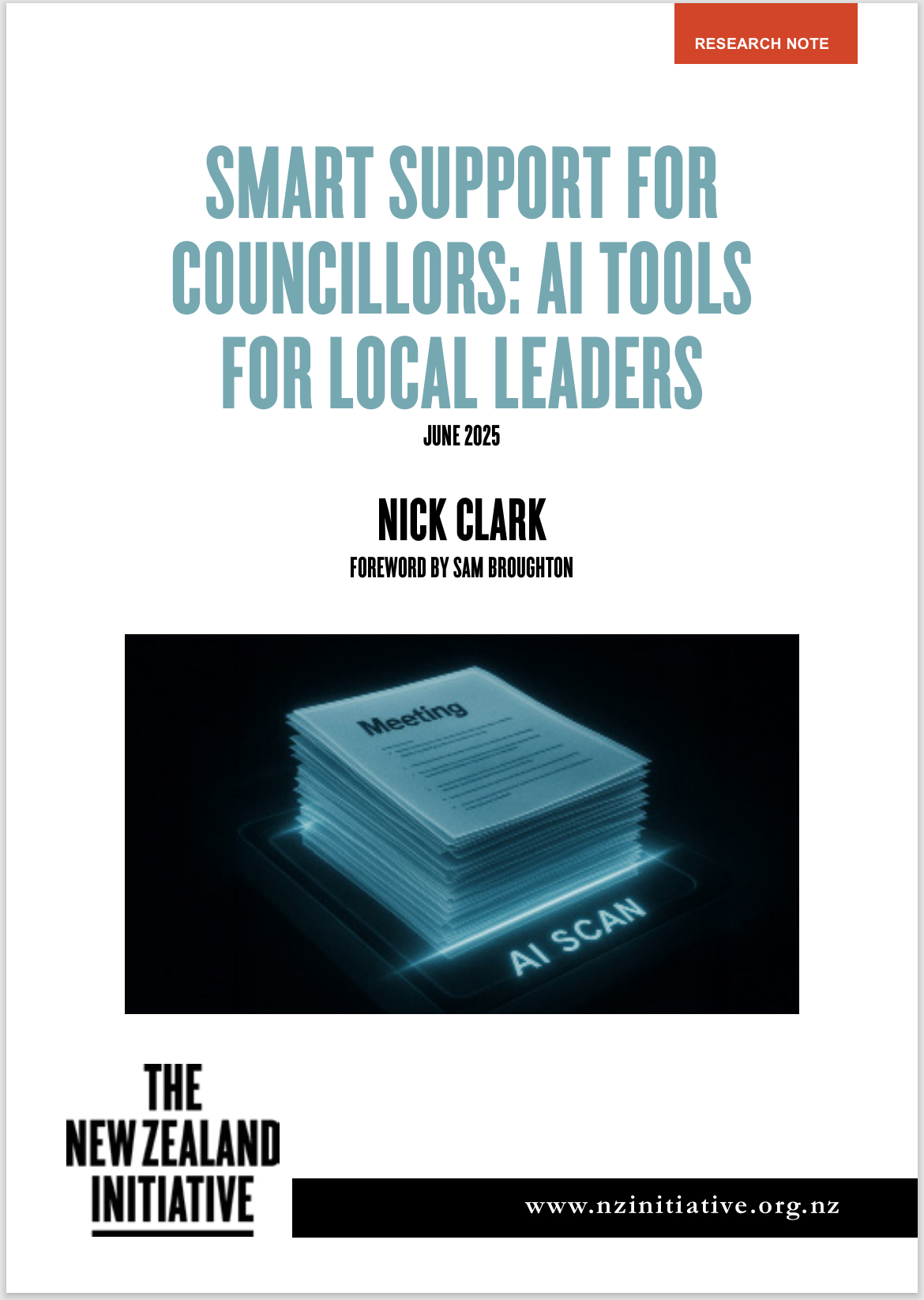Picture this: a part-time councillor rushes home from their day job, grabs dinner, then sits down to wade through 600 pages of technical reports two days before a crucial council meeting. Sound familiar?
A new research note by The New Zealand Initiative reveals this scenario plays out across New Zealand every week—and suggests artificial intelligence could offer a lifeline to overwhelmed elected representatives.
The research note, "Smart Support for Councillors: AI Tools for Local Leaders", exposes a troubling reality. Councillors—often teachers, business owners, farmers, or retirees serving part-time—must make critical decisions based on mountains of complex information they barely have time to read, let alone properly analyse.
"Most councillors arrive at meetings clutching thick stacks of reports they had barely enough time to skim," says Nick Clark, a Senior Fellow at The New Zealand Initiative.
"These part-time representatives must somehow process technical information presented by full-time professional staff who have spent weeks preparing the same material. The asymmetry is stark."
Enter AI. But not in the way you might think.
The research identifies how AI tools could level the playing field—quickly analysing council reports, identifying key decision points, flagging inconsistencies with previous decisions, and helping councillors understand financial implications buried deep in technical appendices.
"The objective is not to replace human judgment but to enhance it," Clark emphasises. "There remain fundamental limitations to what AI can do. Value judgments, ethical reasoning, and understanding local context must remain in human hands."
The research does not ignore the elephant in the room. New Zealanders remain deeply sceptical about AI. Privacy concerns, potential biases, and implementation challenges require careful consideration. The research note makes ten recommendations to help address them.
"First and foremost, AI should amplify representative capacity, not diminish it," Clark concluded. "The alternative is continuing a fiction that democratic oversight functions properly when those exercising it lack the basic resources to do so."
An embargoed version of the research note, "Smart Support for Councillors: AI Tools for Local Leaders", is attached to this release and will be available from The New Zealand Initiative website.
This report will be launched on Thursday, 12 June, at 3:00 pm via webinar, which you can register for here.
Nick Clark talks about his latest research note on our podcast with Dr Oliver Hartwich. Listen below.





